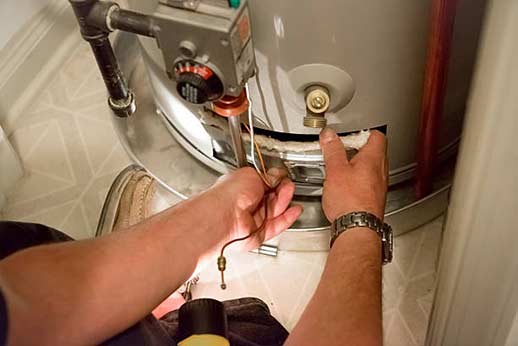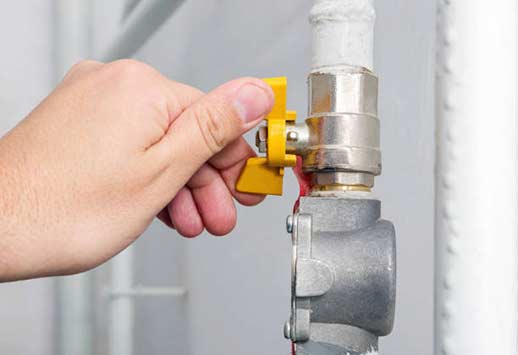
In this article, we will explore the most frequent problems homeowners encounter with their water heaters and discuss possible causes and solutions. Whether you are a DIY enthusiast or just looking to understand the potential problems you may face, this article aims to provide you with valuable insights.
Why Is My Water Heater Not Producing Hot Water?
One of the most frustrating issues homeowners experience with their water heaters is the lack of hot water. There are several reasons why this might happen, including:
- A faulty heating element: If your water heater uses electric heating, a damaged or burned-out heating element could be the culprit. Replacing the faulty element should solve the problem.
- A malfunctioning thermostat: A malfunctioning thermostat may prevent the water heater from reaching the desired temperature. Testing and, if necessary, replacing the thermostat can resolve the issue.
- Sediment buildup: Over time, sediment can accumulate in the tank, reducing its heating efficiency. Flushing the system to remove the sediment may restore proper functioning.
- A tripped circuit breaker: In case of an electrical malfunction, the circuit breaker associated with your water heater might trip. Check the breaker box and reset it if necessary.
- A gas supply issue: For gas water heaters, problems with the gas supply, such as low gas pressure or a faulty gas valve, may lead to insufficient heating. Contact a professional if you suspect a gas-related problem.
What Should I Do If My Water Heater is Leaking?
Discovering a leaking water heater can be alarming, and immediate action is crucial to prevent further damage. Here are some steps to take if you notice a leak:
- Turn off the power supply: Before attempting any inspection or repair, make sure to turn off the power supply to the water heater. This helps ensure your safety.
- Determine the source of the leak: Leaks can originate from various parts of the water heater, such as the tank, valves, or fittings. Identifying the source can guide your next steps.
- Check the temperature and pressure relief valve (TPR valve): The TPR valve is designed to release excess pressure and temperature from the tank. Sometimes, a faulty valve can cause leaks. If you notice water dripping from the TPR valve, it may be necessary to replace it.
- Inspect the drain valve: The drain valve at the bottom of the water heater can develop leaks due to loose connections or corrosion. Tightening or replacing the valve may solve the issue.
- Examine the tank for cracks: A cracked tank is a serious problem that usually requires professional assistance. If you suspect a cracked tank, contact a plumber immediately.
Why Does My Water Heater Make Strange Noises?
If your water heater emits unusual noises, it could be a sign of underlying issues. Common reasons for strange water heater noises include:
- Sediment buildup: Sediment can accumulate at the bottom of the tank, causing rumbling or popping sounds during heating cycles. Flushing the system can help remove the sediment and silence the noises.
- A faulty heating element: A heating element covered in sediment may produce hissing or sizzling sounds. Flushing the heater and, if necessary, replacing the damaged element should resolve the problem.
- Thermal expansion: When water heats, it expands. If excessive pressure builds up in the tank, it can result in banging or knocking sounds. Installing an expansion tank can alleviate these noises.
- Mineral deposits in hard water: If your area has hard water, mineral deposits can accumulate on the heating elements, causing crackling or popping sounds. Regular maintenance and descaling can minimize this issue.

What Should I Do If My Water Heater has Low Water Pressure?
If you are experiencing low water pressure from your water heater, consider the following possible causes:
- Clogged pipes: Mineral deposits or sediment buildup in the pipes can hinder the flow of water, resulting in reduced pressure. Flushing the pipes or contacting a professional plumber can help resolve this issue.
- A faulty pressure regulator: The pressure regulator controls the water pressure entering your home. If it malfunctions, the pressure may be lower than desired. A plumber can inspect and repair or replace the regulator if needed.
- A partially closed valve: Check the water supply valve leading to the water heater. If it is not fully open, it can restrict water flow and reduce pressure.
- Leaking pipes: A leak in the hot water pipes can cause reduced pressure. Inspect the pipes for any signs of leaks and repair or replace them accordingly.
In Conclusion
Water heater issues can be frustrating and disruptive to your daily routine. By familiarizing yourself with common problems and their potential causes, you can troubleshoot minor issues or communicate effectively with a professional technician. Remember to prioritize safety and contact a qualified local plumber or electrician for complex problems or if you feel uncomfortable performing any repairs yourself. Regular maintenance and proactive care can help extend the lifespan of your water heater and ensure a consistent supply of hot water for your household.
